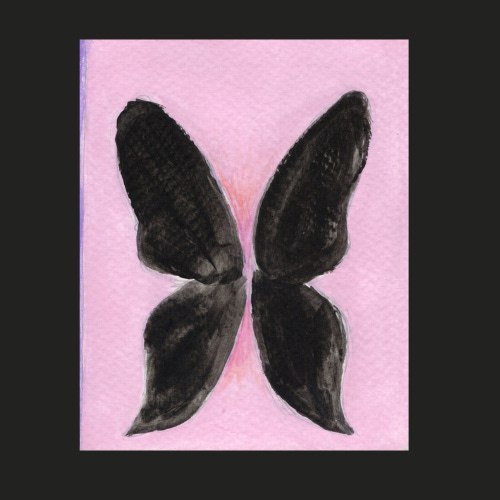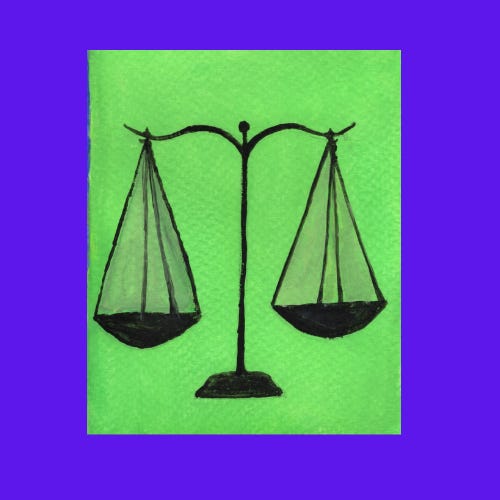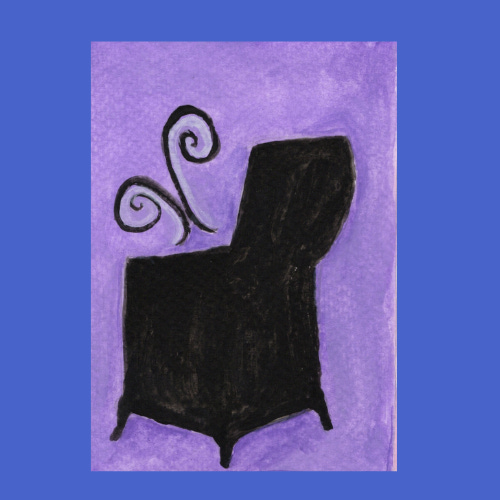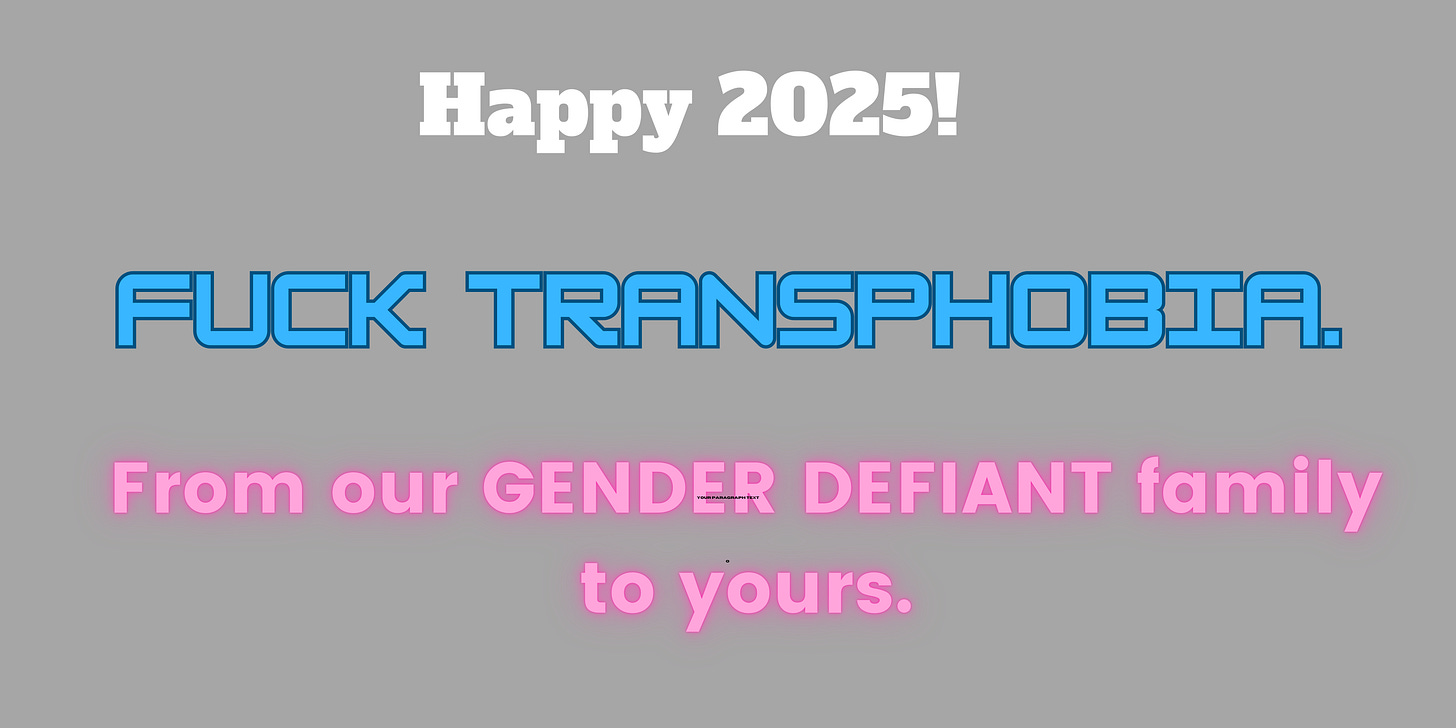GET TO KNOW US IN 2025! INTRODUCING OUR GENDER DEFIANT FAMILY
How dare we call ourselves “family”? We only just came together as writers a few months ago! Yet here we are: launched into the intimacy of shared sorrow after the 2024 election
We are four writers and parents resolved to speak back to anti-trans sentiment by telling our own stories—not only the hard parts but also the joys of living in gender fluid families. Here are our backstories!
TINA CARSON: I launched GD in 2022, after my eleven-year-old came out as transgender, when I desperately needed to communicate how scary it is to parent a trans kid amid transphobia.
As I calculated the risk my column might attract harm to myself or my child, I adopted a pseudonym. By now, Gender Defiant readers know a lot about “Tina Carson” and my kid “JJ.” I’m a mom, poet, and teacher. JJ is trans nonbinary and basically your typical teenager. They have a lot of pet reptiles.
Writing my column, I gradually realized that people who aren’t trans, or don’t have trans or nonbinary kids, feel distant from trans issues. I was shocked. After all, isn’t it true that what harms one of us harms us all? I hoped GD would reach many parents—not just parents of gender fluid kids—and inspire them to educate themselves and become allies too.
Gender Defiant’s audience grew. But writing the column became an increasingly lonely endeavor. Even though I felt it was really important to communicate to my readers how hard it can be to make space for one’s trans child, focusing on that struggle daily started to get me down. The fact is, trans is not tragedy, and trans folk are so much more than the fears they face. It was time to open up the conversation and pull more voices in.
This is why I am so excited that Gender Defiant has expanded. Here we all are! Tina plus three other writers—all parents—who have stories to tell about life in the realm of gender expansiveness. I am pleased to introduce Noa Rabinow, Melody Roth, and Heather Jones.
Tell our readers a bit about yourselves. What prompts you to write for Gender Defiant?
NOA RABINOW: I am Noa, mom to Izzy, who was assigned male at birth and came out as trans in middle school. Now she’s in high school. Izzy is also an adoptee from China.
I want to shout to the world—or at least, other parents—that gender is so much more than the ugly fights on our national stage and Republicans demanding to look in people’s pants in public restrooms. My relationship to my own gender has grown as I educate myself to try and be a better mom—I never expected that. I am not trans or nonbinary, exactly, but I see how expectations on me as a girl who happened to be born with a vagina and a uterus ruled my life. For one thing, I felt pressure to be attractive, as a teen and a grown woman, in narrow ways. If I failed, I failed as a person. It was constrictive. It was harmful. Now I know there is so much room in gender. By the way, Izzy doesn’t agree with all of my ideas. She’s her own person.
There aren’t many positive spaces to talk about gender with other parents and people. On Gender Defiant, I feel accompanied, and I hope to accompany a reader. I’m here for community.
MELODY ROTH: I am Melody, mother of a young transgender woman. I got involved in advocacy to help my daughter get the gender affirming care she needed. I’m a white woman, with all of the privilege the skin I accidentally was born with confers. While I could see how sexism was always a part of my life, I didn’t truly, fully “get” the extent of the discrimination marginalized people face. I get it now.
I have spent years fighting with state agencies and insurance companies to obtain gender-affirming care for my daughter, despite the fact we live in a state that mandates its coverage. I have come to understand that legal equal rights is merely the first step toward achieving equality and that none of us are equal until we are all equal.
Every day, those who are less marginalized receive more than their share, and those who are more marginalized receive less. While this may not be our individual intention, it is the way of the world and something that must be recognized, considered, and addressed to the best of our ability, constantly and consistently. I now know that addressing this inequity will be my life's purpose until I draw my last breath.
Why am I part of Gender Defiant? This started in defense of my daughter, but I find myself persistently triggered by the discussions I become a part of. In truth I have always been gender defiant, from my earliest memories of being forced to wear dresses and behave “like a lady.” “Smile honey and look pretty.” I want to smash those barriers. I won’t be defined by this world. People define themselves. That is the definition of freedom.
HEATHER JONES: I grew up in Texas as a conservative Christian, typically masculine, straight white male, and I am now a transgender woman.
I have learned to treat my life as a riddle, as if I’m a journeying soul who must figure out the answer in order to advance to a higher realm. It’s not a religious idea. I don’t try to recruit other people to believe in it. It’s just a mind game I play that has kept me alive when I’ve been tempted, at times, to take my exit.
What prompts me to write for GD is that I have learned a few things from my efforts to understand myself that may be of some use to kids who are constantly made to feel like everybody hates them. I grew up learning to hate people like me, which makes me think the solution to the riddle is to treat people we don’t understand with kindness, not fear.
The rise in suicide attempts by transgender youth following passage of anti-trans legislation is on my mind. So is research that says suicidality is greatly reduced for trans kids who have at least one supportive adult in their lives. I write for Gender Defiant in hopes of increasing the prevalence of supportive adults in the world.
What are you reading at the moment, and who are you reading the most at the moment?
TINA: I am about to dive into Miranda July’s All Fours because I hear it’s a great read for menopausal women. Very recently, I finished Italian author Elena Ferrante’s The Lying Lives of Adults. I love everything by Ferrante. But mostly I read poetry and I’ve been trying very hard to pull trans poetics into my realm. I’ve posted a bunch of writers I like and admire here and here and here, for instance, on Gender Defiant and one of these developments that excites me is how writers that formerly identified as cis are now moving into trans and nonbinary zones. Gabrielle Calvocoressi, Eileen Myles, Isaac Jarnot—one of my favorite poets! I’m also really digging work by poet Paul Tran.
NOA: I just finished RuPaul’s The House of Hidden Meanings. And Miranda July’s All Fours, TINA hurry up so we can talk about menopause. One of my favorite novels is Detransition, Baby by Lucy Sante. It showed me that even if you detransition and don’t look masculine (masc), or like a woman, you still are trans. Still your true self. Nothing takes that away. At the moment I’m reading trans and GNC (gender nonconforming) writers—Torrey Peters,Trace Peterson, Shayla Lawson, Lucy Sante—because I am running a workshop for fellow parents. Most won’t be writers. Many will be from the PFLAG community. The idea isn’t to write for publication but to get complex feelings into writing. Hoping to at least hold the feelings, maybe start to question and/or heal ourselves. Oh, and I’m about to read Bastard Out of Carolina because I somehow didn’t 20 years ago.
MELODY: My reading leans toward nonfiction. I am currently reading geopolitical writer Peter Zeihan’s The Accidental Superpower: 10 Years On. I find it fascinating that civilizations did not develop in the ways that you might have been taught, but were and are heavily influenced by their geography. I love that as you are reading you are constantly surprised and start to think of each civilization from a new perspective. My favorite book this year was Reading Lolita in Tehran by Azar Nafisi. I learned so much about Iran’s history and how the country came to be in the situation it is in today. I think every American should read it for the parallels with our society that are quite frightening, a harbinger of what could come.
HEATHER: I’ve been reading an obscure novella by Mark Twain called A Mysterious Stranger about a medieval village being tormented by the devil. I’ve been reading a lot of Percival Everett lately. Also short stories by the Russians—Chekhov, Gogol, my beloved Tolstoy. And by my kindred spirit, the foul-mouthed Flannery O’Connor, who didn’t live long enough to write enough to satisfy me, so sometimes I have to write her would-be late-career stuff myself. You should see this stuff. It’s pretty amazing. Her writing has developed as you’d imagine it would.
What does a regular day look like for you?
NOA: I love walking outside and getting a hit of fabric softener from someone’s dryer vent. I work from home and take walking breaks. I enjoy artificial smells, I enjoy poisoning invasive vines. I’ve made friends with poison. I have a garden and am outdoors in all seasons in mud. My house is dusty. I don’t cook, but I make bread. I take care of creatures and people and friendships and relationships and work. I am a lowkey person of faith. There’s a morning service online at my temple I attend a couple of times a week. It’s a supportive, activist, gender diverse group and on days the news is hard, it grounds me. We also laugh a lot.
MELODY: It seems as if I am the opposite of Noa. I take my walks in the woods and enjoy the smells and sounds of nature. In fact, this year has been concerning as I have noticed significantly fewer birds than usual. I am semi-retired, and cooking most of our family's meals at home takes up a significant part of each day. I am probably least adept at baking bread. I have never mastered it. I get up around 6:30 because my dogs demand it. What we have in common: I hate dusting, so most of the time there is a layer of dust on everything, and I am on a mission to reclaim my garden from invasive blackberries. I spend far too much time keeping up with the news, I read and write and respond to requests, but I also fight. I fight for transgender rights, women’s rights and all equality rights. Sometimes I go for a week or two without fighting, but then something happens and I am drawn back in.
HEATHER: I usually have about seventeen creative projects going at once, in multiple trades. They keep me productive regardless of my mood. That is, if I don’t feel like doing one thing, I’ve got sixteen others to choose from. I keep myself busy to keep ahead of anxiety or to exhaust it. Yesterday I finished building some bookshelves I’ve been working on. Next I have to stain them, which I hate doing, but after that I’ll add the books and it’ll look great. My daughter and I hang out a lot. I make a killer beef stew. Some days I do volunteer work for my town. And I do a lot of writing, both creative and, as Melody says, persuasive.
TINA: I start most days by heading to a pilates or “bounce” class (which is a high-cardio affair that involves jumping and running on trampolines and lifting weights). I go to a class because I do not actually enjoy exercising and won’t do it unless I am watched. It’s also necessary for me to do it before I wake up and think up an excuse to do something else. In the summer, all I do is garden. During the rest of the year, I spend my days teaching, running errands, cooking, and hanging out with my family. We also have a lot of animals, so I’m constantly feeding or cleaning up after them (ask me about the LitterRobot). In the evenings I like to write and read and generally engage in creative work, and I usually stay up late.
Who do you see as your reader here at GD?
NOA: Parents who are hopeful, angry, fearful, joyful, or all of those. I imagine a reader who is kind of irreverent and laughs at the dark. A fellow cis parent of a trans child looking for company. I might be too much of a cishet writer for some TGNC (trans and gender nonconforming) readers, but that’s okay, there are voices enough for every reader to find company. I like to write for people who have no idea what it is like to live in a gender expansive household or who maybe know someone who just came out. I imagine a curious, open reader. Even a conservative or resistant—but information seeking, heart-seeking.
MELODY: I grew up in the long shadow of WWII. Its lessons were omnipresent. Americans were the good guys, protecting the world from fascism. I grew up on the rule of law, the Constitution with its checks and balances, and the separation of church and state. How many times growing up did I learn that George Washington was a hero because he declined to remain the President, stepped down and went home. The readers I am looking for are the Americans that share these values and see the slippery slope we are on. I hope to call them to action.
TINA: I write to persuade, entertain, and educate progressive folks who may not have trans issues on their radar because they don’t have trans folk in their immediate lives. These are people who often assume they are liberal and down for the cause but really don’t know how to advocate or talk about these issues. Mostly because they don’t have to think about them. These people, to my mind, are ready to learn what they can do to help. I also want to normalize transness for folks who worry they’ll “get it wrong” when talking about gender expression and pronouns. I want people to not be so intimidated and realize that these issues do not need to be tiptoed around.
HEATHER: I grew up conservative. I understand how conservatives see the world, so folks who come from a similar background might find some things to think about in my writing. Other than that, when I write, I am my audience, which means I am writing to a transgender woman who has about a half-formed understanding of who she is, and a three-quarters-formed understanding of how she got that way. She is someone who is concerned about her freedom in the coming years. She doesn’t trust people much but is fascinated by human behavior and the ingenuity of our adaptions. She likes to laugh and thinks everything is absurd, and she feels that all of our efforts are futile, but insists on trying anyway.
Tell us about your pronouns!
NOA: My pronouns are she/they. You might assume she given how I dress, my face, or my voice. You might not guess they. By the way, “she/they” means both she/her and they/them are okay, I’m good with either. Partly I use “they” to remind myself I am so much more than the narrow, ultrafeminine version of me I was raised to put on display. I am in my own process of discovery about my gender. Calling myself she/they opens a chance to be more than just she, which felt constricting by itself. It’s possible that people might use different pronouns in different seasons of their lives. No other aspect of ourselves is static; why consider gender expression immutable? People acquire more life as they age. We gather more understanding of ourselves.
HEATHER: I use the pronouns most women use: she/her. What I’m expressing when I invite others to refer to me as she/her is who I feel I am regardless of my appearance. Gender is not the same as sex. We are not born with it. It is shaped in us through our experiences with the world. Gender is the composite result of the enduring impacts of our individual social development. In bygone days, and perhaps future ones, humans were regimented by their governments into strict family patterns to support the military and economic engines of civilization. Boys were raised as little soldiers and laborers, and girls were fashioned into sexual objects, and robots who cook and clean. Since the sexual revolution, these lines have been obscured, and now male-bodied humans often come under the formative processes that produce “typical female behavior,” and female-bodied humans are often affected by the processes that produce “typical male behavior.” When this happens, affected individuals are counseled to “keep it to themselves” and act out their assigned role. Thus, it is a matter of personal integrity to align one’s outward expression with their true identity if these do not match in the traditional way. By inviting people to refer to me as she/her, I am signaling that, despite what you see before you, this is a feminine person you’re dealing with. Not that anyone is obligated to play along, but I gravitate toward people who want to know me as me rather than as a rendition of some generic type.
MELODY: My pronouns are she/her. I grew up in a time and place where the concept of gender-affirming pronouns did not exist, at least in my world. They weren’t something I thought about. I did chafe against the gender norms that were forced on me, but I did not associate them with my pronouns. I didn’t realize that pronouns were assigned at birth in a somewhat arbitrary fashion. A doctor or nurse or midwife just looked and assigned male or female. No one talked about intersex or ambiguous sex as that was taboo; DNA testing would have been a very long and rare process. There was no concept of gender identity, no concept of choice, at least not for me. But the gender norms—they ground away at me and I resisted. They did not define me.
TINA: Until recently, I was “she/her.” I never felt dysphoric in my female-identified body, but I wasn’t thrilled to be cast into the role of “woman.” It felt random and casually cruel to be treated differently as a woman, particularly with regard to being underestimated, objectified, and invalidated (oh I could go on). Learning how my kid felt about their gender, and then how they approached gender on an intellectual level, freed me. I realized that the box I’d been placed in was imaginary, even though the experience was real enough. Recently, I picked up “they” to add to my “she.” Why? I’ve become accustomed to using it for a lot of people, especially when I may not yet know what someone’s pronouns are. Also, why assume? I then decided, strategically, to use “she/they” with my students in order to model employing a variety of pronouns. If everyone in the class is “she/her” and “he/him,” we’re not making use of the available range of identification. I wasn’t sure if this was “okay” at first, because I do feel comfortably cis het. So I asked JJ, who said, “You can use whatever pronouns you like.” Which reminded me: that’s the whole point of getting to use different pronouns.















Okay, one down and more to go. You all need at least one dude in here, but don't look at me. LOL